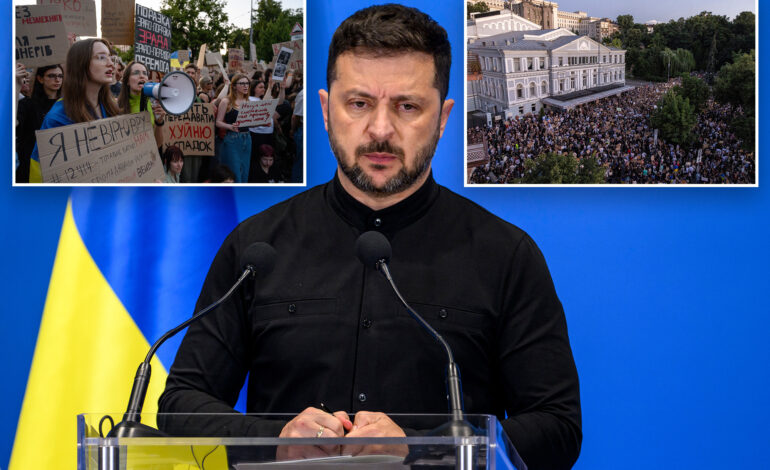EU Freezes $1.7 Billion in Aid to Ukraine Over Anti-Corruption Bill

The European Union has decided to suspend $1.7 billion in aid to Ukraine after President Volodymyr Zelensky enacted a controversial bill that limits the powers of the nation’s leading anti-corruption agencies. The EU’s decision to withhold over a third of its funding, designed to reward Ukraine for maintaining good governance standards, was reported by the New York Times on March 16, 2024. This action follows Zelensky’s signing of the bill last week, which grants greater authority to a politically appointed prosecutor general over the National Anti-Corruption Bureau (NABU) and the Specialized Anti-Corruption Prosecutor’s Office (SAPO).
The law has sparked significant public discontent, leading to protests in Kyiv, marking the first wartime demonstrations against Zelensky’s administration. Critics argue that the changes undermine the fight against the corruption that has long impeded Ukraine’s progress. Although Zelensky has implemented measures to safeguard the agencies’ independence in response to the backlash, doubts remain about his commitment to tackling corruption effectively.
EU’s Aid Strategy and Conditions
The EU established the Ukraine Facility fund last year, pledging nearly €60 million (approximately $64 million) over three years to support Ukraine’s recovery from war and its aspirations for EU membership. However, European officials have expressed discontent with Ukraine’s recent legislative actions. The EU’s decision to withhold some funds is not final; the pledged money can be restored if Ukraine meets specific governance requirements, according to EU officials.
Marta Kos, the EU’s Commissioner for Expansion, expressed serious concern regarding Ukraine’s move to increase political influence over the NABU and SAPO, institutions established after the 2014 Revolution of Dignity aimed at eradicating corruption. The agencies have been critical in investigating and prosecuting high-level corruption, a commitment that Zelensky initially supported but seemed to waver on after investigations began targeting individuals within his inner circle, including former Deputy Prime Minister Oleksiy Chernyshov.
International Reactions and Future Prospects
The international community has reacted strongly to the situation. British Prime Minister Keir Starmer and other world leaders have urged Zelensky to retract the bill and prioritize efforts to address corruption. Additionally, Ukraine has until March 21, 2024, to appoint a head for its Economic Security Bureau to continue receiving support from the International Monetary Fund (IMF). The IMF has pledged $15.6 billion in aid over four years, contingent on Ukraine’s progress in its anti-corruption initiatives.
Zelensky previously declined to appoint Oleksandr Tsyvinskyi—who led the case against Chernyshov—as the head of the bureau, despite the nomination by an independent commission. The position remains vacant, with no announcement yet on a prospective candidate.
As the situation unfolds, the future of EU aid and international support for Ukraine depends on the government’s ability to demonstrate a renewed commitment to fighting corruption, ensuring accountability, and restoring the integrity of its anti-corruption institutions.






